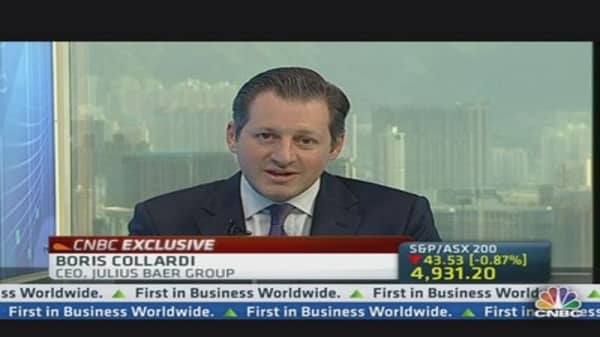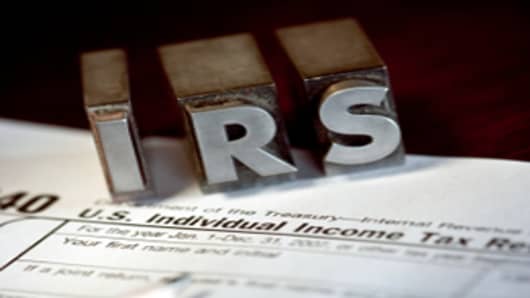The recent move by the Swiss government to allow banks to sidestep secrecy laws to reveal client names won't prevent them from depositing money in the country, said the CEO of Swiss private bank Julius Baer.
"I think clients have been coming around for a while. I would tell you that in the last few years we've seen market by market clients moving to the new paradigm," Boris Collardi, CEO of Julius Baer said, referring to the changing private banking climate in Switzerland that has been facing pressure from the U.S. to disclose information on wealthy Americans using offshore private banking services.
(Read More: Tax Evasion Dangerous for Europe: Schulz)
While in the past banking secrecy was one of the main reasons why people turned to private banks in Switzerland, Collardi said the safety and security of a banking center today also plays a very important role.
"I personally think that given a choice even in this new business model, clients will continue to favor Switzerland over other financial centers," Collardi told CNBC Asia's "Squawk Box" on Thursday.
(Read More: Credit Suisse Warns of US Tax Spat Escalation if Talks Fail)
His comments come as the Swiss government tries to resolve a long-running dispute with the U.S. over tax evasion, permitting banks to sidestep the country's secrecy laws.
The move will allow Swiss banks to hand over client details to the U.S. government in exchange for a promise against future legal repercussion and gives the banks one year to decide if they accept the American offer, the New York Times reported.
Collardi said it's still open to debate whether this move by the Switzerland government will set a precedence in other countries, but the financial center has begun "repositioning" its banking sector under the new regulatory environment.
(Read More: Switzerland to Allow Its Banks to Sidestep Secrecy Laws)
"I think we welcome that bit of clarity finally comes on this topic. I think give or take two years Switzerland will have moved into the new business model," Collardi said.
A breakthrough in the dispute with the U.S. came in 2009, when the country's biggest bank UBS was forced to pay a fine of $780 million and deliver the names of more than 4,000 clients to avoid indictment, giving the U.S. authorities information that allowed them to then pursue other Swiss banks, Reuters reported.
— By CNBC.com's Rajeshni Naidu-Ghelani; Follow her on Twitter @RajeshniNaidu




